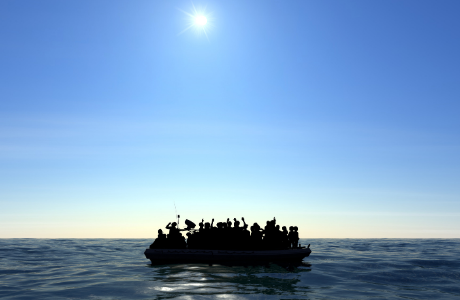The old adage says laughter is the best medicine, but how much does laughter actually affect one’s wellbeing?
I read with interest recently when the Herald Sun reported the visit of “humour therapists” to nursing home residents with dementia.
“Four hundred residents from 36 nursing homes took part in the SMILE study led by University of NSW researchers who wanted to see if humour had an effect on people with dementia in terms of their mood, agitation levels, behaviour and social engagement.The researchers worked with ‘humour therapist’ Jean-Paul Bell, who co-founded the Humour Foundation and works as a ‘clown doctor’ cheering up patients in children’s hospitals.”
Lead researcher Dr Lee-Fay Low said residents who received humour therapy showed a 20 per cent reduction in agitated behaviour such as aggression, wandering, screaming and repetitive behaviour. Other patients who had not spoken for some time started to utter a few words and eventually exchanged conversation.
The results of the humour therapy show that laughter really could be the best medicine when it comes to treating older people with dementia.
It doesn’t stop there. If you google “Laughter is the best medicine”, you’ll come up with over 5 million results many of which (and no I haven’t read them all) show the positive impact of real laughter on our health and well being. We all know from firsthand experience how much better we feel after a good belly laugh.
What we know to be scientifically true today the Bible spoke of 3,000 years ago when King Solomon wrote, “A cheerful heart is good medicine” (Proverbs 17:22).
This principle was recorded powerfully in the 1984 book and movie, “Anatomy of an illness” – the famous story recounting Norman Cousins’ partnership with his doctors in overcoming a crippling and supposedly irreversible degenerative spinal disease. When he was in pain he would watch Marx Brothers comedy movies. He says, “I made the joyous discovery that ten minutes of genuine belly laughter had an anaesthetic effect and would give me at least two hours of pain-free sleep. When the pain-killing effect of the laughter wore off, we would switch on the motion picture projector again and not infrequently, it would lead to another pain-free interval.”
Medical science has proven that those with a happy attitude to life:
- Think more clearly
- Work more effectively
- Enjoy their leisure time
- Get on better with others
- Are generally healthier
- Have an enhanced memory, and
- Their sense organs perform to their maximum efficiency.
Joy releases endorphins into the blood stream. These “natural drugs” are more powerful than morphine. They give a natural high, reduce pain, relieve tension and aid in the healing process.
It’s been estimated that at least two-thirds of those who visit doctors do so because of stress-related symptoms. In fact stress and other psychosomatic problems (worry, fear, depression etc) are at the root of about 90% of all sickness.
With this in mind it is a timely reminder that laughter truly is the best medicine.
Why not plan a good belly-laugh session today.








